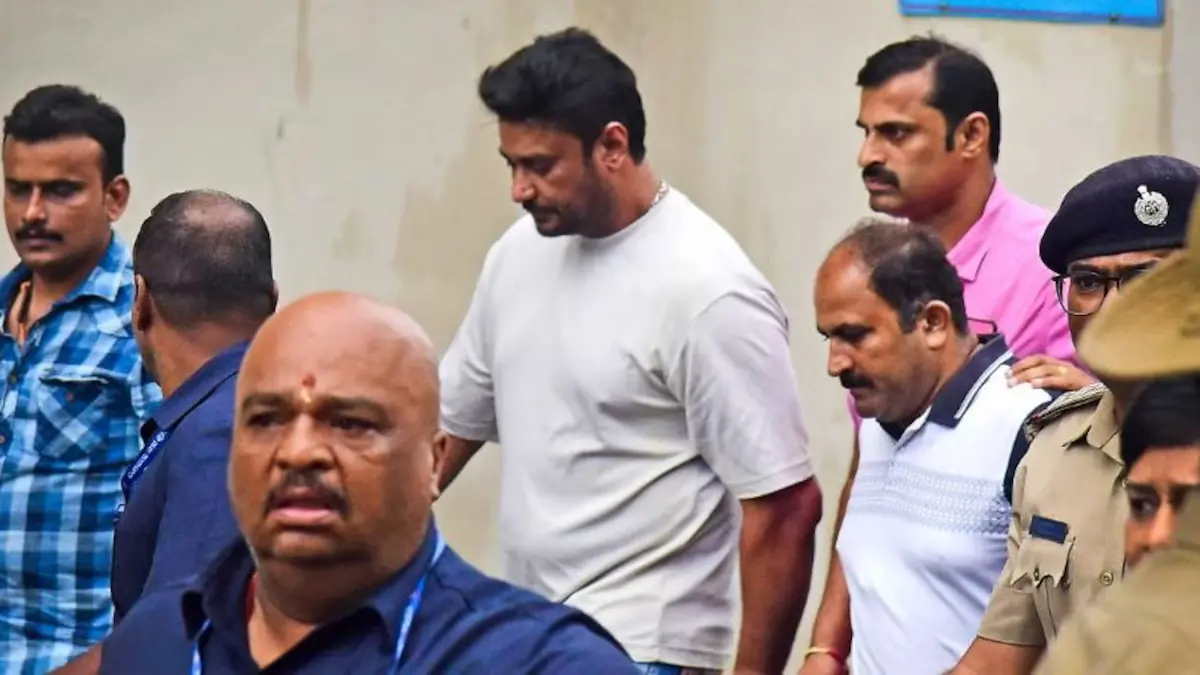Karnataka High Court Orders Re-Transfer of Actor Darshan's Co-Accused in Renukaswamy Murder Case Back to Bengaluru Jail
In a significant development in the Renukaswamy murder case, the Karnataka High Court has mandated the re-transfer of Pradosh S. Rao, the 14th accused in the case, back to the central prison at Parappana Agrahara in Bengaluru. This ruling follows a contentious discussion regarding the circumstances surrounding Pradosh's incarceration, particularly his alleged presence in controversial photographs featuring actor Darshan and known rowdy sheeter ‘Wilson Garden Naga.’
During the hearings, Pradosh's legal team argued vigorously that he was not present in the disputed images that circulated in the media, which depicted Darshan holding a mug and cigarette in the company of others. Justice M. Nagaprasanna emphasized the principle that while a prisoner does not have the luxury of choosing their place of confinement, any decision to transfer an under-trial prisoner must be backed by a compelling rationale and careful consideration.
On August 27, 2024, an Additional Chief Judicial Magistrate in Bengaluru had granted a request from the Chief Superintendent of Prisons to relocate all under-trial prisoners involved in the case to various facilities across the state, including Darshan and Pradosh. Consequently, Pradosh was moved to Belagavi Central Prison, where he alleged that he was confined to a so-called "Andheri Cell"—a term used to describe a dark cell.
The High Court's interim order issued on August 29 could not be applied retroactively since Pradosh had already been relocated. The court heard alarming claims from Pradosh’s wife, who stated that her husband had been kept in a cell with minimal light for 15 hours a day and subjected to constant surveillance in front of a camera for eight hours, allegedly under the pretext of being monitored.
While the State Public Prosecutor dismissed these claims, the court acknowledged evidence that supported the notion of Pradosh being placed in an Andheri Cell, suggesting that his wife's concerns were valid. Justice Nagaprasanna noted, “Placing an under-trial prisoner in such a cell is not standard procedure unless dire circumstances exist.”
The court also criticized the arbitrary shifting of under-trial prisoners, asserting that such decisions should not be made capriciously. The judge pointed out that if any transfer was warranted, it should have pertained to Darshan, who was more directly involved in the incident, rather than penalizing Pradosh for another’s actions.
Referencing a precedent set by the Supreme Court in the Saeed Sohail case, Justice Nagaprasanna remarked that before any transfer order is issued, the prisoner must be afforded a chance to present their case, as failing to do so could significantly prejudice their rights.
In a decisive conclusion, the court underscored that the repercussions of the allegations against Darshan should not unjustly extend to Pradosh, who was not present at the scene. The ruling effectively highlighted the need for judicial prudence in the treatment of under-trial prisoners, reiterating that the order would not influence the circumstances of other accused individuals in the case but was specific to Pradosh alone.

COMMENTS (0)
Sign in to join the conversation
LOGIN TO COMMENT